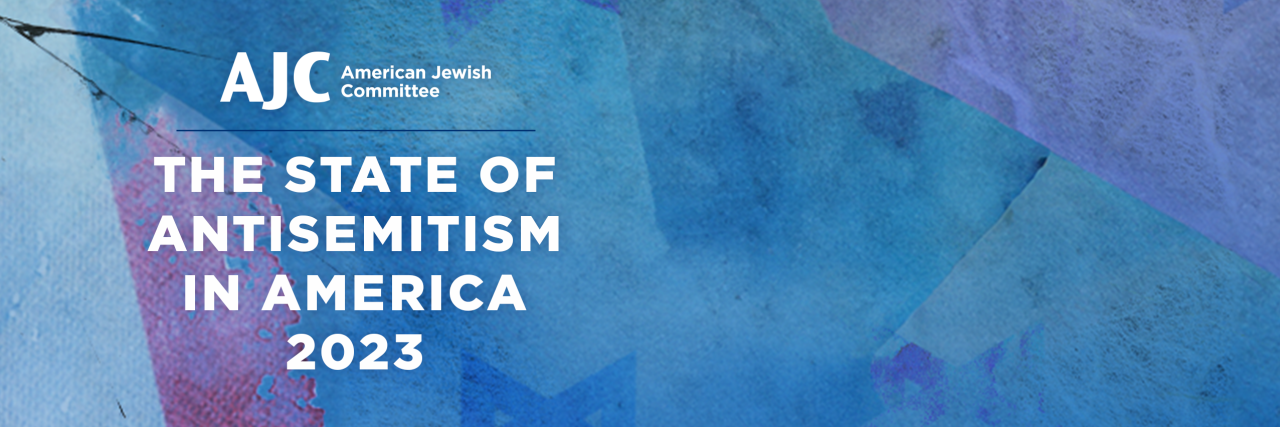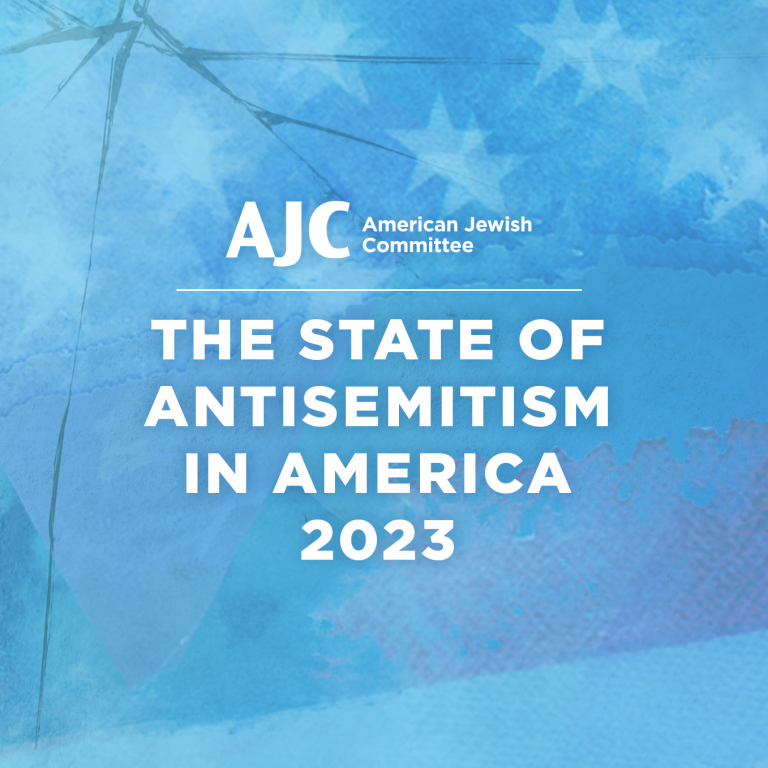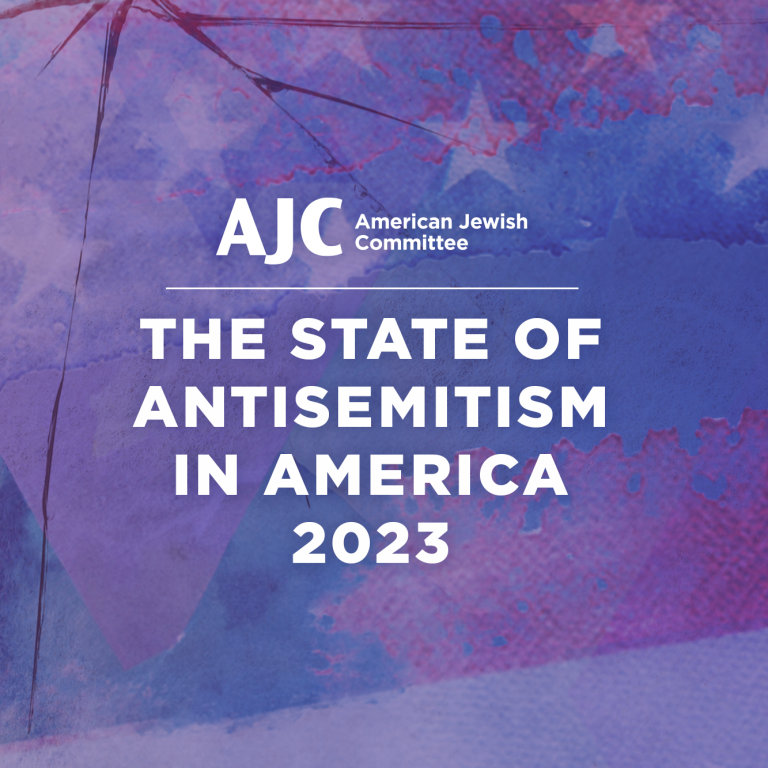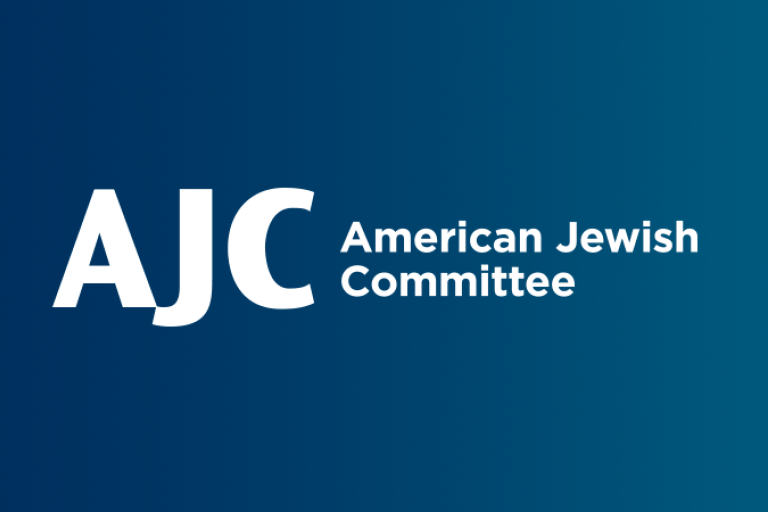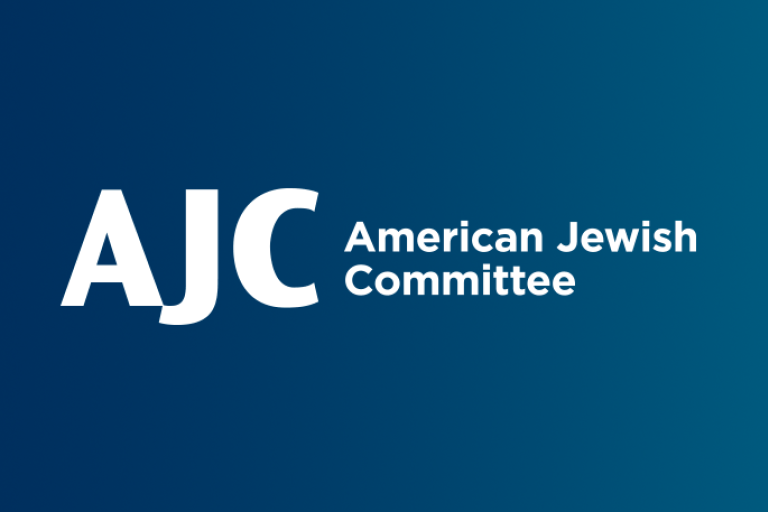February 15, 2024
Like 2022, American Jewish Committee’s State of Antisemitism in America 2023 Report survey included questions to understand experiences of antisemitism at work. For Jewish adults who are employed full-time or part-time, and not self-employed, three in 10 (30%) say they have avoided or experienced at least one of these issues in the workplace this past year:
- 24% have avoided expressing their views on israel because of fears of antisemitism
- 15% have avoided wearing or displaying something that would identify them as Jewish because of fears of antisemitism
- 13% have felt uncomfortable or unsafe because of their Jewish identity
- 6% who report being told they could not take time off work for the Jewish holidays
The percentage of employed Jewish adults who felt uncomfortable or unsafe because of their Jewish identity increased over the past year, from 8% in 2022 to 13% in 2023. Importantly, Jewish adults who have been a target of antisemitism in the past 12 months – regardless of whether it was in the workplace – are more likely than those who have not to have experienced any of these workplace issues (51% versus 22%). Those who have avoided certain situations due to concerns of antisemitism, regardless of whether they were work-related, are more likely than those who have not to say they have experienced at least one of these workplace issues (48% versus 16%).
Employed Jewish adults were also asked if they have ever felt or been excluded because they are Jewish or because of their assumed or actual connection to Israel. Thankfully, these numbers are quite low. Just six percent say they have ever felt or been excluded because of being Jewish, and even fewer say they have ever felt or been excluded because of their assumed or actual connection to Israel (3%).
